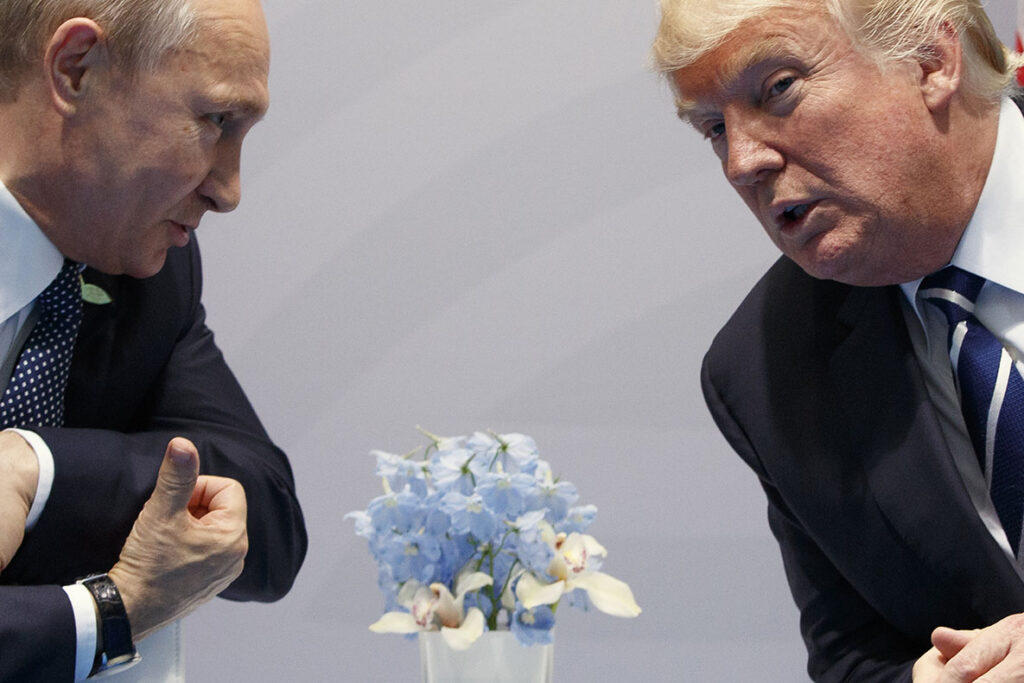Russia’s overheated economy is nearing a significant downturn due to massive fiscal stimulus, rising interest rates, persistent inflation, and the impact of Western sanctions. However, after three years of war, Washington may have inadvertently provided Moscow with an opportunity. U.S. President Donald Trump is advocating for a swift resolution to the conflict in Ukraine.
This approach has raised concerns among Washington’s European allies, as it excludes them and Ukraine from the initial discussions with Russia. Trump has also placed blame on Ukraine for Russia’s 2022 invasion, which could benefit Moscow economically.
Washington’s initiative comes at a time when Moscow faces two challenging choices, as noted by Oleg Vyugin, a former deputy chairman of Russia’s central bank.
Russia can either reduce military spending while seeking to gain territory in Ukraine, or it can continue its current spending levels and endure years of sluggish growth, elevated inflation, and declining living standards, all of which pose political risks.
Although government spending typically boosts growth, the current focus on non-regenerative military spending has led to overheating. As a result, interest rates at 21% are curtailing corporate investment, and inflation remains unmanageable.
Vyugin stated, “For economic reasons, Russia is interested in negotiating a diplomatic end to the conflict. (This) will avoid further increasing the redistribution of limited resources for unproductive purposes. It’s the only way to avoid stagflation.”
While Russia is unlikely to quickly cut defense spending, which constitutes about a third of its budget, the possibility of a diplomatic resolution could alleviate other economic pressures, potentially lead to sanctions relief, and facilitate the return of Western companies.
Alexander Kolyandr, a researcher at the Center for European Policy Analysis (CEPA), explained that Russia would be hesitant to abruptly halt arms production. This caution stems from fears of triggering a recession and the need to rebuild its military.
However, reducing the number of soldiers could alleviate some pressure on the labor market.
War-related recruitment and emigration have resulted in significant labor shortages, driving Russian unemployment to a record low of 2.3%.
Kolyandr also suggested that inflationary pressures might ease, as prospects for peace could make Washington less inclined to impose secondary sanctions on companies from countries like China. This would simplify and reduce costs for imports.
GRADUAL DECLINE
Russian markets have already experienced a positive shift, with the rouble reaching a near six-month high against the dollar, buoyed by hopes for sanctions relief.
After a slight contraction in 2022, Russia’s economy has shown strong growth. However, authorities anticipate that growth will decelerate from 4.1% in 2024 to around 1-2% this year. The central bank has yet to identify sustainable conditions for lowering interest rates.
On February 14, Central Bank Governor Elvira Nabiullina stated that demand growth has consistently outpaced production capacity, leading to a natural slowdown in growth.
The central bank faces the challenge of balancing economic growth with inflation reduction amid rampant fiscal stimulus. In January alone, Russia’s fiscal deficit surged to 1.7 trillion roubles ($19.21 billion), a 14-fold increase year-on-year, as Moscow accelerated its spending for 2025.
Nabiullina emphasized the importance of maintaining the planned budget deficit.
The finance ministry expects a total deficit of 1.2 trillion roubles for 2025 and has revised its budget plans three times over the past year.
The war has created economic benefits for some Russians while causing hardship for others.
Workers in military-related sectors have seen significant wage increases due to fiscal stimulus, while those in civilian sectors struggle with skyrocketing prices for essential goods.
Some businesses have capitalized on the shifts in trade flows and reduced competition. For instance, Melon Fashion Group has reported steady revenue growth, and the average size of its new stores has doubled since 2023.
However, high interest rates present a significant challenge for many.
Elena Bondarchuk, founder of warehouse developer Orientir, remarked, “At current lending rates, it is difficult for developments to launch new projects. The once-wide circle of investors has narrowed, and those who remain are also dependent on banks’ terms.”
Russia faces several economic risks, including lower oil prices, budget constraints, and an increase in bad corporate debt, according to internal documents reviewed by Reuters. Trump has offered potential concessions regarding Ukraine but has also warned of additional sanctions if a deal is not reached.
Chris Weafer, chief executive of Macro-Advisory Ltd, stated, “The United States has significant leverage in terms of the economy, and it’s why the Russians are happy to meet.
The United States is saying: ‘We can ease sanctions if you cooperate, but if you don’t, we can make it a hell of a lot worse.'”
Click here for more World news.


